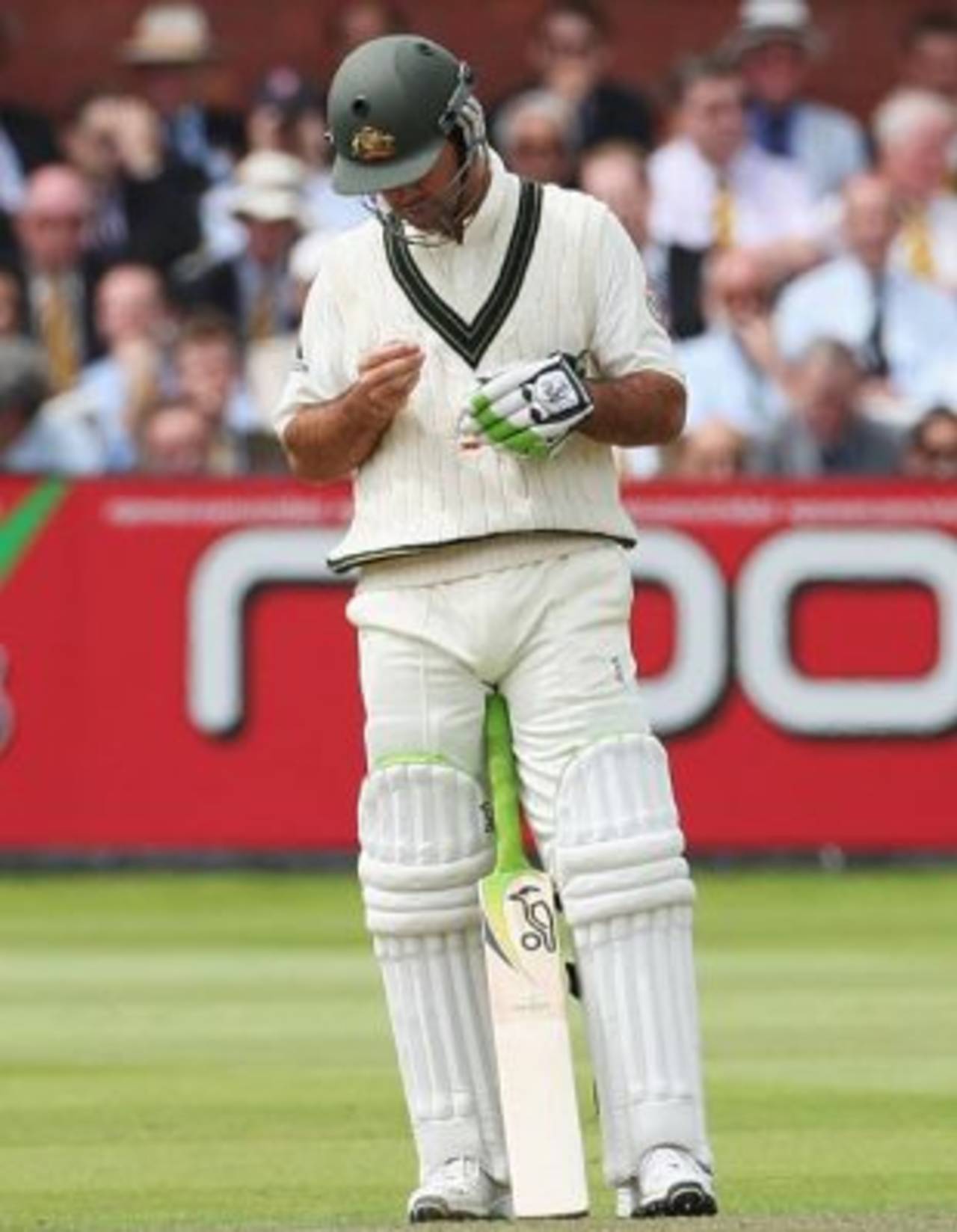The cinema at the back of the MCC Museum was a cramped and sweaty venue for Ricky Ponting to reflect on the end of an era. As he took his place in front of the lights of an array of TV cameras, the Ashes urn itself could not have been more than 10 metres from where he sat. It has been a constant source of Australian irritation that the prize they value above all others in international cricket has
seldom ventured beyond its glass case at the home of cricket, but for three-quarters of a century, that home itself has been a citadel where the Baggy Green
reigns supreme.
Today, however, England recaptured their castle, with Andrew Flintoff battering a hole through the defences, and while the urn remains an Australian keepsake for now, their challenge of regrouping in the final three Tests feels that little bit harder with the banker fixture bulldozed out of the equation. England have waited 75 years to end a hoodoo that outlasts even the search for a homegrown Wimbledon champion, and they have taken a 1-0 lead in an Ashes series for the first time since 1997. History and momentum suddenly feel aligned.
"We knew about all those records and facts coming into the game," said Ponting. "It wasn't a motivating factor for the team to want to play well, but we had a very proud record here until now, and losing on the biggest stage that you play Test cricket on makes that a little bit more disappointing. As a group we've just been a bit off the mark right the way through the game. We've tried our hardest and things didn't fall into place for as us we would've liked."
With his grizzled features and battered Baggy Green, Ponting's gameface has a lived-in look to it, as well it might after 14 years as an elite Australian cricketer. He was present in the dressing-room back in 1997, when England were
skittled for 77 in a rain-wrecked game, and he followed up that sighter with victories in 2001 and 2005. All the while that Australia have been the undisputed champions of Test cricket, success at Lord's has been taken as read. No single setback at any ground in the world could do more to underline the fact that a new and uncertain era is upon them.
Australia have played
19 Tests at Lord's since Hedley Verity spun them to defeat
in 1934, and they have emerged victorious on nine separate and memorable occasions. In times of strife Lord's has been a touchstone, in times of dominance it's been Australia's jewel in the crown.
In 1948, in the second Test of the Invincibles tour, for instance, their margin of victory was an agenda-setting 409 runs;
in 1985, when Allan Border led arguably their weakest Ashes team in history, they still found the resolve to square the series at HQ, with Border himself making 196 in a tense four-wicket win.
No single setback at any ground in the world could do more to underline the fact that a new and uncertain era is upon them
Thirteen years before that, it was Bob Massie's turn to feel the Lord's effect, as he found inspiration beyond belief to claim 16 wickets on his Test debut - one more than he managed in the whole of the rest of his career. In 1989, it was Steve Waugh - Australia's Mr History himself - who cemented their series lead with the second and proudest century of his formative tour. At every turn, the grandest stage in the game has provided inspiration to Australia, and that was even the case in an heroic but doomed fourth innings today, when Michael Clarke rose above the disappointment of his 91 here four years ago, to lead the assault on an ultimately unattainable world record.
But sadly for Australia, the one moment when that inspiration went astray was the moment they needed it most. On the first morning of this contest, with eight Lord's debutants in their ranks, Ponting's men shrunk from history where their forebears would have risen to grasp it. In 29 overs of a stunningly one-sided session, England's openers hurtled to 126 for 0. As hard as Australia tried to regroup thereafter, the damage to their prospects had been done - as the final margin of victory clearly demonstrated.
Instead it was England who set about seizing some history for themselves. Flintoff does not profess to being a stats man, which is just as well in a career that is destined to be under-rewarded. But he nevertheless rose above himself, about his injury concerns, and most importantly of all, above his favourite foes, to carve his second entry on the Lord's honours boards, six long and eventful years after battering a futile century in an innings defeat to South Africa.
In so doing he became only the sixth man to make his mark on both the batting and bowling lists, but it was history of a very different kind that drove him on today. "Everyone was on about 75 years and not having won at Lord's," he said, "but apart from a couple of Tests that had nothing to do with us. It was a massive team effort and it was nice to get five, and go up on that board. But to go one-up in an Ashes series was the big one."
